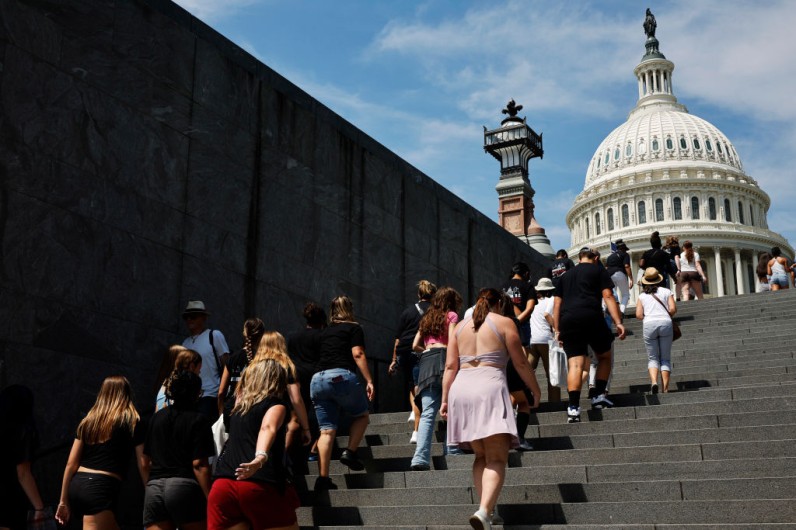
Since the onset of the year's second quarter, there have been new signs of economic weakening in the US. Recent data from VCPost reveals an uptick in unemployment to 4.1% for June, alongside rising credit card delinquencies and consumer debt.
Despite these indicators, investors have shown resilience, propelling the S&P 500 and Nasdaq to record highs following the jobs report. Year-to-date, the S&P 500 has surged by 17%, reflecting strong market sentiment even as economic growth and inflation show signs of moderation, potentially paving the way for future interest rate cuts from the Federal Reserve.
Analysts attribute this market optimism to a return to pre-pandemic economic norms, which traders typically favor. However, looming over this economic recovery is the upcoming US election season, said Wall Street analysts to CNN.
In fact, President Joe Biden's recent scrutiny over the viability of his reelection campaign has intensified discussions among investors about potential impacts on economic policies and market stability.
US Economy Ahead of Elections
Michael Reynolds, vice president of investment strategy at Glenmede, noted that while the recent jobs report signaled a normalization in the labor market, it was largely expected and did not disrupt ongoing trends.
Reynolds emphasized that despite the rise in unemployment, which aligns with the Fed's projected natural rate amid economic stabilization, it does not necessarily indicate a downturn.
Future responses from the financial markets will depend on forthcoming economic indicators, specifically the Consumer Price Index (CPI) report. The CPI report provides insights into inflation trends, which are pivotal for determining whether the Federal Reserve might lower interest rates later in the year.
While there has been some optimism about possible rate cuts based on current data, uncertainties related to the upcoming election and potential changes in economic policies depending on election results could lead to increased instability and market fluctuations.
Edmond de Rothschild Asset Management's Chief Investment Officer, Benjamin Melman predicted that a Donald Trump win would push inflation to its highest level.







Join the Conversation